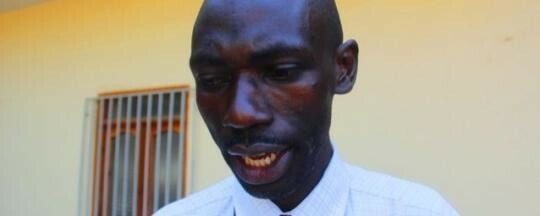Edmund Yakani, a renowned South Sudanese civil society activist, attended a consultative meeting of stakeholders for the establishment of the Political Parties Council.
Radio Tamazuj caught up and sounded out the civil society representative about what was discussed in the consultative meeting last week.
Below are edited excerpts:
Q: Mr Yakani, what were the outcomes of the meeting on the establishment of the Political Parties Council?
A: During the meeting, the high-level technical committee overseeing the implementation of the peace agreement discussed the formation of the Political Parties Council. Various stakeholders participated in the meeting, including religious leaders, youth, women, academicians, businesspeople, civil society representatives, and individuals with special needs.
Additionally, 15 members from different political parties, both signatories and non-signatories to the peace agreement, were present. The participants agreed that the council should be independent and not affiliated with any specific party. As per the Political Parties Act, as stated in chapters 11, 12 and 13, the council will consist of a chairperson, deputy chairperson, and seven members, with a 35% representation of women. It was also decided that the council’s establishment would not be based on the power-sharing model of the peace agreement.
Q: Did all the signatory parties to the peace agreement participate in the meeting?
A: Yes, in addition to the signatory parties, other political parties in Juba also attended the meeting.
Q: So, you agreed that the council shall be independent, comprising nine members, including a representative.
A: Yes, we reached a consensus to include a representative from people with disabilities.
Q: Has the timeframe for the establishment of the council been decided?
A: During the meeting, it was agreed that the nominees for the chairperson, deputy, and seven members would be endorsed on Thursday, 27 July. The nomination process is open to all parties, although the council’s independence means that political parties have a reduced role in nominating members. Stakeholders’ responsibility is to vet the nominees.
Q: What is the eligibility criteria for the chairperson and deputy positions?
A: The criteria for the chairperson and deputy chairperson roles include being a South Sudanese citizen, aged above 35, possessing at least a secondary school certificate, having no criminal record, and not having any affiliation with a political party.
Q: Does this mean that the endorsement of nominees will happen soon?
A: Yes, parties can submit their nominations from until Wednesday 26th July. The endorsement process will commence on 27th July, and the selected candidates will be presented to the President for appointment.
Q: The proposed national budget for 2023-2024 allocates less than 280 million SSP to the elections commission, which some argue that will not be sufficient. Was this topic discussed during the meeting?
A: The meeting acknowledged that three bodies are responsible for conducting the elections: the elections commission, the political parties council, and the constitution review committee. The budget allocated in the fiscal year of 2023-2024 addresses provisions such as staff salaries and other expenditures, not specifically the elections. The political leaders confirmed that each of these bodies would have a separate budget, which would be allocated after their establishment. The political parties council, once established, will present its budget to the council of ministries, who will then present it to the national parliament.
Q: But the proposed national budget does not explicitly mention these separate budgets?
A: Correct. The absence of these separate budgets in the proposed national budget is because the institutions responsible for conducting the elections are not yet established. The minister of Justice mentioned that once the political parties council is established, they will draft and present their budget.
Q: So, the proposed budget will primarily address the election commission’s staff salaries, voter registrations, capacity building, and office rental in the states?
A: Yes, exactly. The minister of finance confirmed that there will be a separate budget specifically for the upcoming elections.
Q: Given that certain crucial elements for conducting the elections are not yet in place, such as security arrangements, do you believe the elections will be held as planned in December 2024?
A: As a civil society representative, we have concerns about the unimplemented elements, including security arrangements, establishment of the necessary bodies, and the allocation of funds. However, we believe it is crucial for the elections to be held as planned in December 2024.
The legitimacy of the government will be at stake if the elections are further delayed, and we are not prepared for another extension of the transitional period. The President has emphasized on multiple occasions that there will be no further extension, and the elections must proceed. A fair and free election is possible with political will.




